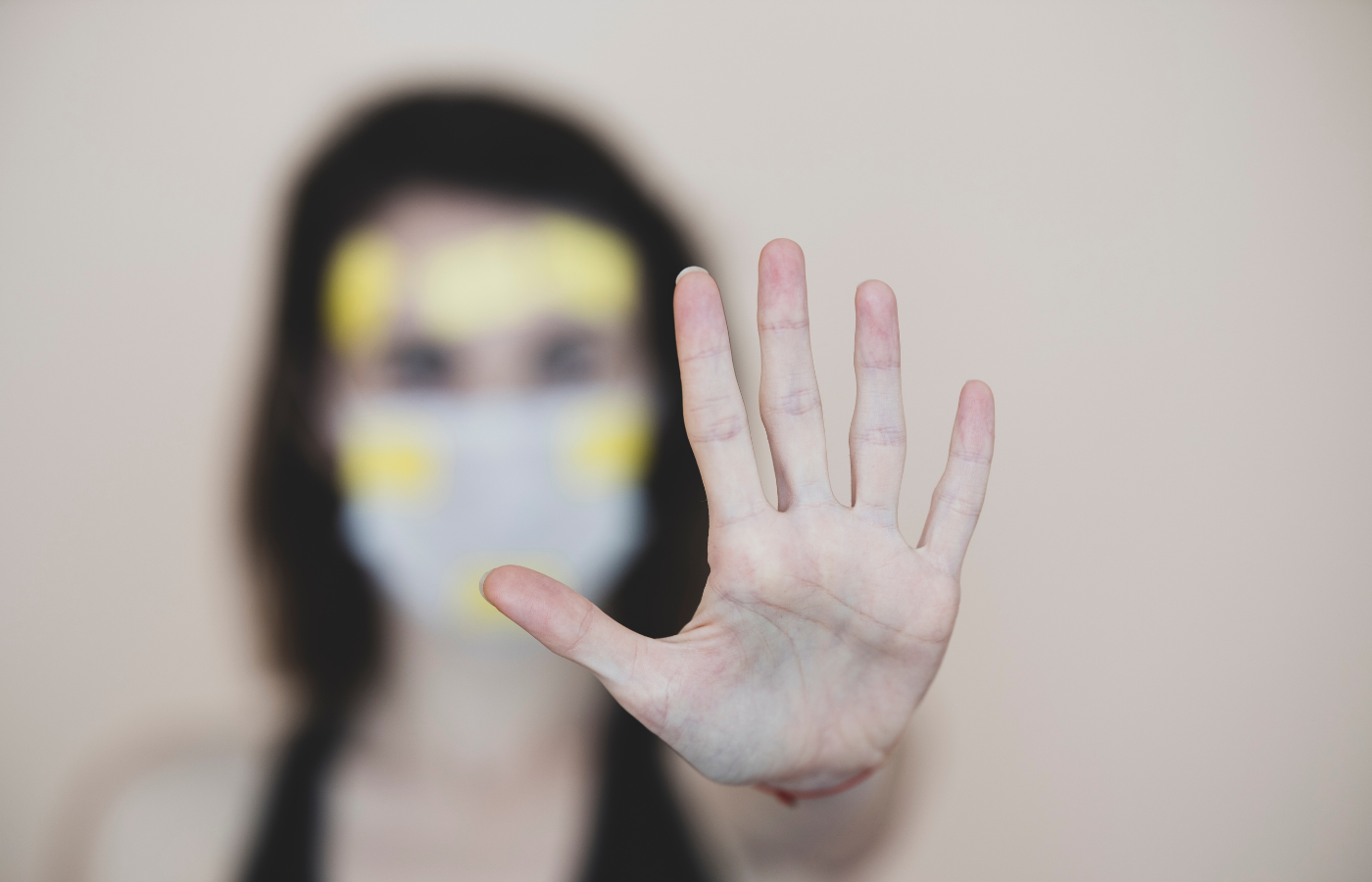
The mask and wearing it has become a more present topic lately than the Coronavirus itself. They are almost dissociated and some seem to forget why we have to wear a mask and focus on it as the only source of the chaos in which we live. It is normal to be like that! Coronavirus is an invisible enemy but the mask, with its limitations and discomfort, is as visible as possible, which justifies our revolt against it.
If the mask still bothers us or we even stubbornly refuse it, it means that we haven’t yet formed the habit of wearing it. When it is formed, the automatism translates into the fact that "we forget that we have the mask on our face", becoming part of us. However, the habits are built over time with little help from us.
The one who rejects the mask is our brain! It has worked all its life to provide adaptive responses that contain states, moods, judgments, decisions and actions, starting from a relatively linear reality in which it has developed and which it controls. The mask means a reconfiguration of reality, of the answer it has to provide. That is, it has to work, make an effort but why do that when it can make us "give up" the new reality and return, as two good friends, to the known life, to what was before.
No matter how smart it is, the brain doesn't tell us directly: “I don't feel like working now to help you adapt! That's what I know, that's what I do!”. Instead, it conveys exactly this through the states we experience. Embarrassment, discomfort, feeling of suffocation, difficult breathing, sensations of dizziness, fatigue for some people. They are all weapons that our brain uses to do nothing except what it already knows. With the purpose to preserve itself.
I found a very recent study in which a team of researchers, led by Vanessa Veis Ribeiro, showed that the mask affects the perception of vocal effort, causes difficulties in speech intelligibility, speech coordination and breathing. All these are effects produced and signalled by our brain that "refuses" to adapt to a new situation.
Let's do a small exercise of the imagination. Think of going home on the same route every day. At first, you went with caution, you were attentive to everything that happened. You noticed and remembered that there was a dog barking angrily behind the green gate and scared you very much. That there was a small prominent ramp next to the bakery that you could stumble upon. That there was a street sign a little too low and there was the risk of hitting it. At first, your attention was extremely demanded, the brain stored every piece of information you sent to it, then it said to itself: “That’s it! Now I know the way!”. After crossing that street a few times, at some point you no longer hear the angry dog, although it is just as vocal, you no longer notice the ramp and the dangerous sign and you instinctively avoid them. Just as you have learned the physical route, the brain has built its cortical pathway (a pattern) that helps you walk the path with minimal effort. This is what automation means: investing minimum resources in something.
One day, the street you are walking on is blocked by an intervention team from the gas distributor and a man informs you that you have to walk on the next street. He laughs when he sees how confused you look at him and tries to help you: "Look, it's the street over there, you have to walk 3 minutes more!". Yes, it's a street nearby, it requires only 3 extra minutes of your time as a physical resource but it forces you, more precisely, it forces the brain to provide another actional response because everything you see and meet on the recommended street involves new stimuli for it and its obligation to design a new cortical pathway. That means consumed resources, invested effort. And because it's "smart", after all, it's your brain, it doesn't even feel stimulated to work! "Why should I work to make a new scheme when we return to the old route tomorrow?!". The first thing the brain is trying to do is get you back on the initial route. But that's not up to you! This compliance with the new situation translates into annoyance, discomfort and fatigue. Perceptually, there are some difficulties: you can't concentrate, you get irritated by almost anything and you can assign the label of "Danger!" to completely harmless things.
This is exactly what happens to the brain when we wear a mask! It tries to force us to return to the normality for which it has already worked. Difficulties in perception, vocal or otherwise, difficulties in the efficient correlation of mental processes, are just signs of brain revolt. But just as we have no choice, we must wear a mask, it also has no choice, it must help us to adapt! For this, it needs exercise and a little time. No matter how rebellious, anchored in its patterns, it will find resources to redefine itself, to adapt! And then we will feel comfort, relaxation and instead of forgetting the mask on the shelf in the hallway or the car, we forget the mask ... on the face.




